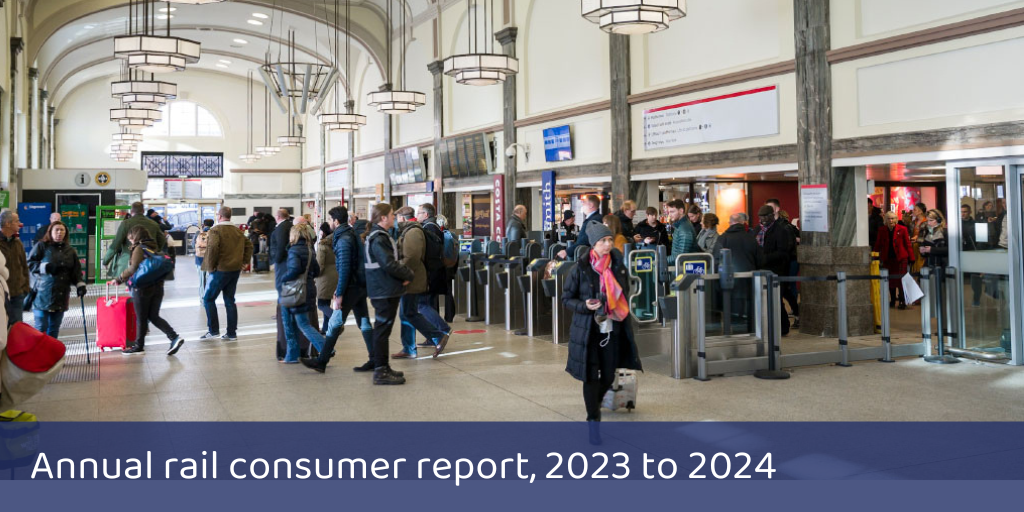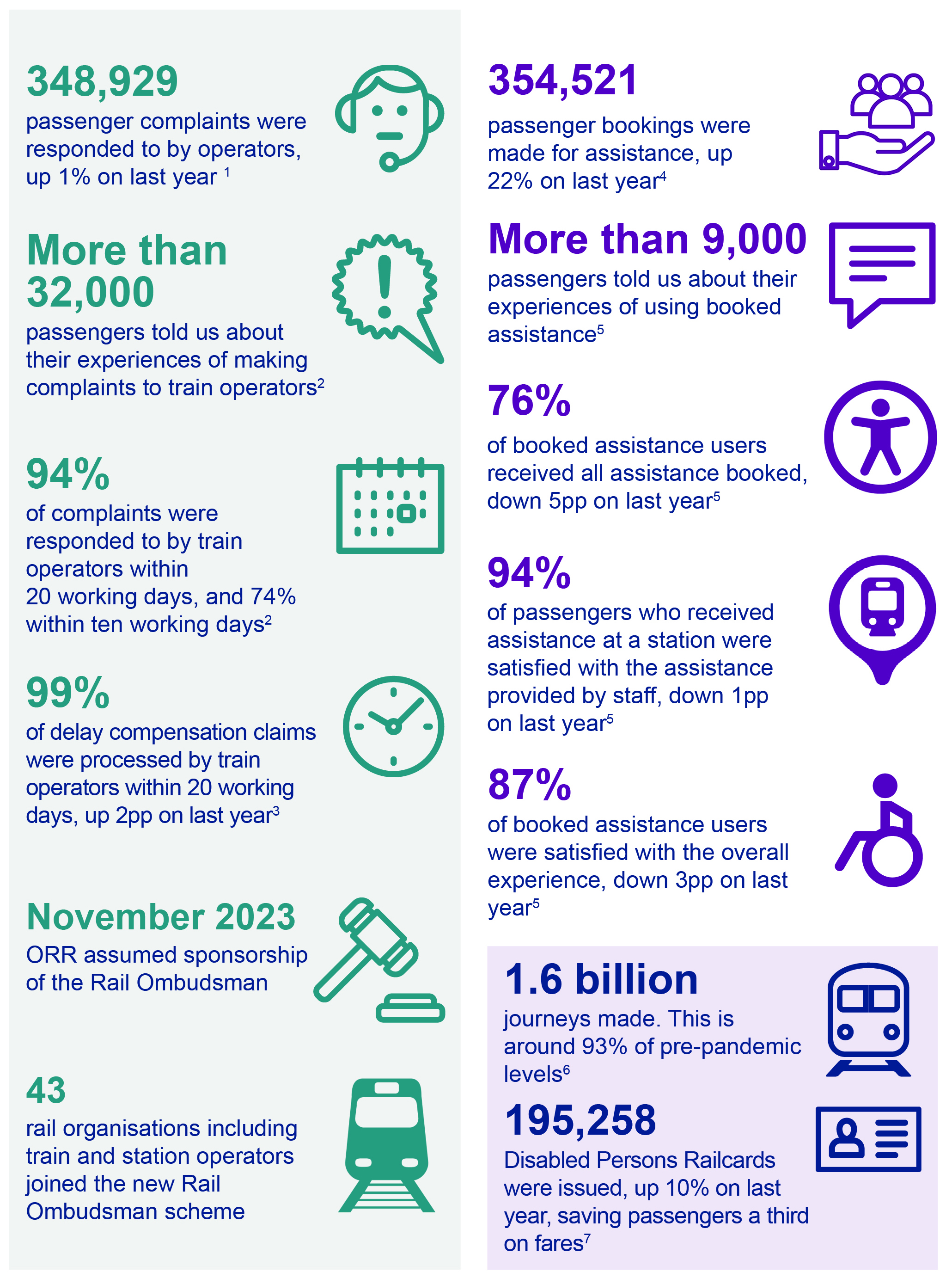
Executive summary
Passengers across Great Britain made 1.6 billion journeys by rail this year. For every journey, we want travellers to feel confident about the experience they can expect. This report highlights our key interventions to protect passengers during 2023 to 2024 and our forward plan.
Planning a journey
We understand the importance of the passenger experience right from the point that people start to plan their journeys. Some passengers want to speak directly with a member of staff, as we saw through the public response to proposals from industry to close many ticket offices. But others are increasingly going online to plan journeys and purchase rail tickets.
Our achievements this year include:
- securing increased transparency from online retailers where they charge fees
- improvements in the notifications sent to passengers who have purchased online when there are changes to their booked train, and
- a 50% reduction in the maximum refund fee that can be charged when a passenger decides not to travel
We have now initiated a review of the Retail Information Code of Practice, which is designed to provide clarity to retailers on their obligations to passengers, to promote further good practice.
Accessibility and assistance
Our rail network should be accessible to all, and this year we have seen a 22% increase in the number of bookings for passenger assistance.
However, operators have not sustained the improvements in delivery of booked assistance that we saw last year. Our passenger research suggests that cross-industry performance this year has fallen back to the levels seen in 2022 to 2023. We expect operators to turn this around.
We are developing a new approach to benchmarking performance that will enable us to hold operators to account more transparently and robustly. We will assess in the coming year whether the busiest stations are meeting requirements for how they manage communications between departure and destination stations on the assistance needs of passengers.
Lifts at stations are key enablers of access to the railway. We have started to publish data on lift performance and launched a review of Network Rail’s processes for lift maintenance.
Protecting passengers when services are disrupted

Train service reliability is a top priority for passengers, and so also needs to be a top priority for industry. Where services are disrupted, whether by planned engineering work or unplanned events, we expect operators to minimise the impact on passengers.
Our current focus includes:
- improvements in passenger information for rail replacement buses
- provision of live information about lift availability
- the health, safety and welfare of passengers when they are at risk of being stranded on a train for hours
ORR sponsorship of the Rail Ombudsman
Where things go wrong, passengers can claim compensation and operators must respond appropriately to any complaints. This year, as an extension to ORR’s role, we took over sponsorship of the Rail Ombudsman, a free, impartial and independent service that passengers can use to escalate unresolved complaints about train and station operators. We are now working to improve aspects of the service including:
- the introduction of new passenger contact channels to provide a more accessible service
- improved response times for certain case types to speed up the complaint resolution process for passengers
In the year ahead, we will continue to make targeted interventions in the passenger interest, tackling underperformance by operators and driving service improvements.
Infographic: Key figures
Covering the period from April 2023 to March 2024. Percentage point differences reflect a comparison with the previous year.

Infographic sources:
- ORR Passenger rail service complaints statistical release
- ORR Passenger satisfaction with complaint handling survey
- ORR Delay compensation claims
- ORR Passenger assistance factsheet
- ORR Passenger Assist User Experience Survey
- ORR Passenger rail usage statistical release
- ORR Disabled Persons Railcards factsheet
Note: pp = percentage points

